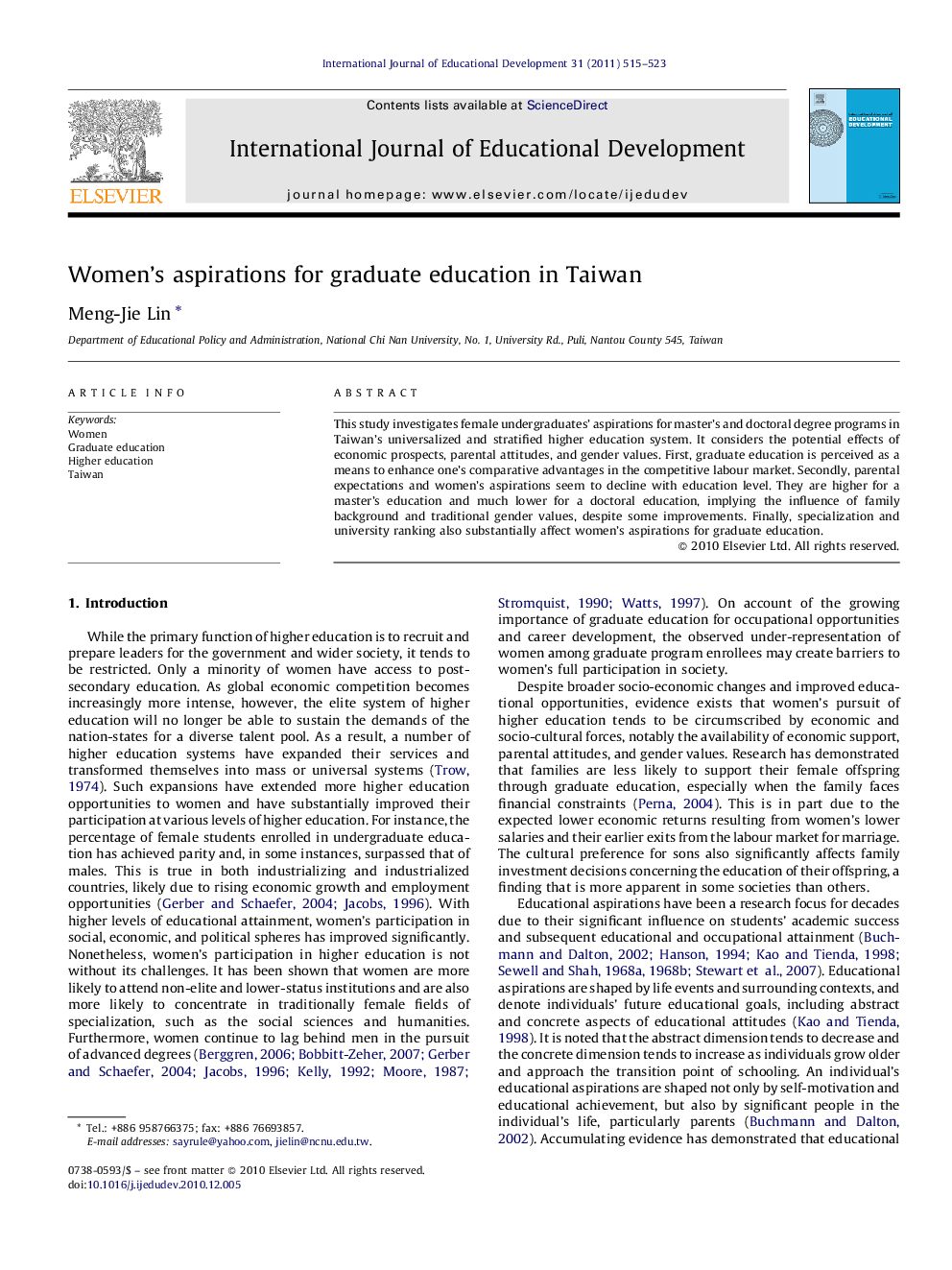| Article ID | Journal | Published Year | Pages | File Type |
|---|---|---|---|---|
| 356246 | International Journal of Educational Development | 2011 | 9 Pages |
This study investigates female undergraduates’ aspirations for master's and doctoral degree programs in Taiwan's universalized and stratified higher education system. It considers the potential effects of economic prospects, parental attitudes, and gender values. First, graduate education is perceived as a means to enhance one's comparative advantages in the competitive labour market. Secondly, parental expectations and women's aspirations seem to decline with education level. They are higher for a master's education and much lower for a doctoral education, implying the influence of family background and traditional gender values, despite some improvements. Finally, specialization and university ranking also substantially affect women's aspirations for graduate education.
Research highlights▶ Employment prospects significantly affect respondents’ aspirations for higher education. ▶ Women's aspirations for post-collegiate education, particularly doctoral education, are closely associated with their family background, notably economic conditions. ▶ Specialization considerably affects one's aspirations for graduate education, especially in the case of doctoral programs. Aspirations are highest for those majoring in engineering. Social sciences and humanities are in the middle, and aspirations are lowest for those specializing in arts and management. ▶ Respondents’ aspirations for graduate education are also considerably related to the ranking of their university in the hierarchy of the higher education system. ▶ Parental expectations for daughters’ participation in higher education seem to decline with education level, with the highest expectations for undergraduate education and the lowest for doctoral education.
